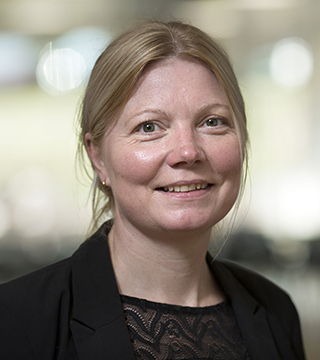Karin Lykke-Hartmann

“We have found new substances that could potentially help the thousands of women who experience infertility.”
Reproductive biology: Research with potential applications
What takes place in the female germ cells and what makes it possible to create a new human being? These questions are the focal point of Karin Lykke-Hartmann's research. The researcher examines the genes that contribute to proper and complete maturation of the woman's egg.
Together with her colleagues, Karin Lykke-Hartmann has identified new pathways that regulate and control the maturation of follicles in female ovaries.
"We have found new substances that could potentially help the thousands of women who experience infertility. At the moment we’re investigating intracellular functions function of these new substances, and how they affect follicles in the ovary," she says.
The researchers are now in the process of mapping how these new substances work, what they do to the egg, and which signal pathways are being launched or stopped – all in the hope of improving the treatment of reduced fertility in the group of women, who do not benefit from the traditional hormone treatment.
"We explore how the egg cell develops when we apply substances to the egg. And when you examine a germ cell compared to other somatic cells in the body, you see that our germ cells are special. The way in which they are regulated differs significantly from the body's other somatic cells. Even though the same signal pathways can often be found in other cells, the regulation will differ between somatic cells and germ cells.
Karin Lykke-Hartmann is a molecular biologist, and a combination of clinical studies with this background has been crucial for the new findings that she is now working on.
"During my PhD At Yale University I formed my first transgenic mouse, and found a developmental error in the development of the embryo. Subsequently, I studied at the University of Cambridge in the UK, where I learned a new single-cell micro-injection technique that would be applicable in studying the earliest single cell embryo stages"
At that time, Aarhus University did not have a tradition for research within reproduction, but Karin Lykke-Hartmann has been central to developing this field together with other colleagues.
This became clear with her affiliation at AIAS as a Skou Fellow, as well as when she organised the 1st Symposium for Reproduction, Genes and Development, held at Aarhus University. She now holds affiliated with the Department of Clinical Medicine, and Department of Clinical Genetics, Aarhus University Hospital.
"This is very important for our future research, where we’ve already planned studies involving genetic diagnosing of infertile women."

“We have found new substances that could potentially help the thousands of women who experience infertility.”